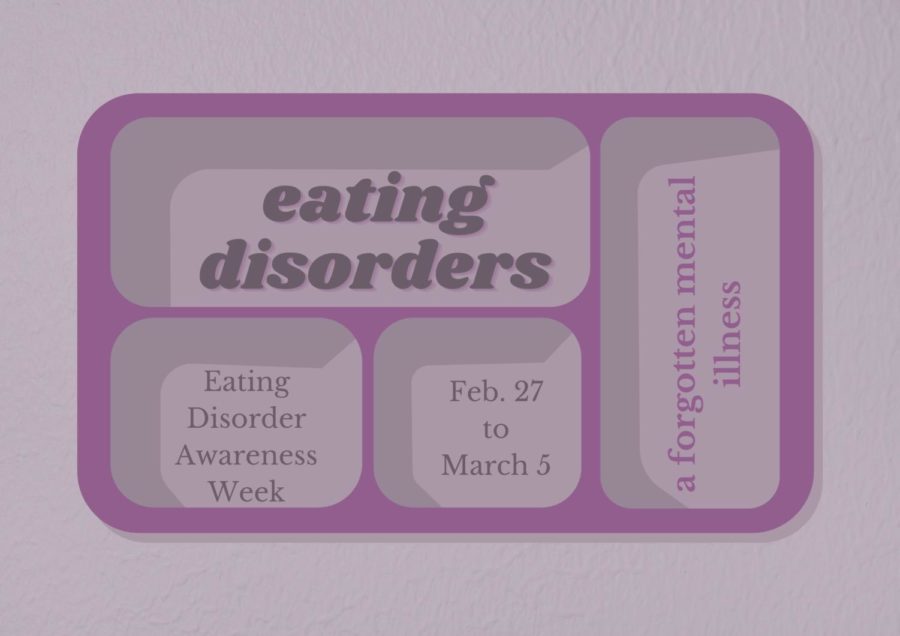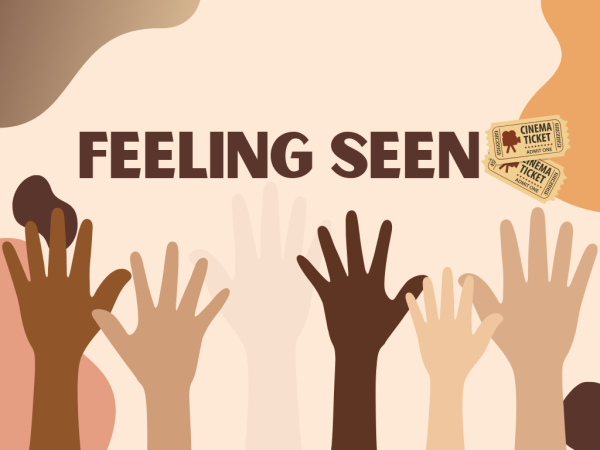Opinion: Eating Disorders are forgotten mental illnesses
Eating disorder awareness week is Feb. 27 to March 5. If you or someone you know is struggling with an eating disorder, the National Eating Disorders Association (NEDA) has a chat line available.
Growing up, I was told about different illnesses, such as the flu, heart disease and cancer, but the list of mental illnesses was limited. In school, administration emphasized suicide awareness and often linked it to addiction and depression, yet eating disorders were often overlooked as a potentially harmful situation in a person’s life.
I truly didn’t even know what an eating disorder was until I got to middle school and saw it affecting the people I loved. I thought unhealthy eating habits were simply unhealthy eating habits – I had no idea there was a concept of something like an eating disorder, and that there were various types of it as well. As a result of not being educated on a matter with significant importance, I was at risk, and so were those around me.
Eating disorders aren’t just “wanting to be skinny” or “hating your body,” nor are they a choice. Eating disorders are a variation of complex medical illnesses related to persistent eating behaviors that negatively impact a person’s health. These behaviors can be caused by both environmental and genetic factors; it could be hereditary genes or even different social pressures. Contrary to popular beliefs, eating disorders aren’t just about weight and food. Even though many think they are rare, they’re actually the third most common chronic illness among adolescents.
Everything I know about eating disorders I found by doing my own research, though it shouldn’t have to be like that. Eating disorders are often forgotten mental illnesses, and though it’s difficult to think about, the reality is that our society prioritizes many things above eating disorders, even with it being the second deadliest mental illness.
Part of the mortality rate being so high is because people lack proper education on the illness, and it isn’t always taken seriously. Every mental illness deserves to be known about simply because there are so many types that affect people in so many different ways.
The continuing mentality that it’s “just a phase” or people who are struggling will “snap out of it” isn’t the case with eating disorders or any mental illness – they’re all complex conditions that rarely, if ever, just “go away.”
It isn’t just the vast majority of society that is uninformed on this matter; even healthcare facilities have limited training on eating disorders. The lack of training is a huge factor in avoidable deaths, and according to a BMJ report, training on the subject is limited to a few hours. It is practically impossible to decipher such a complex illness in just a matter of a few hours.
Individuals suffering from eating disorders deserve to know they’re not alone – just as much as people suffering from any other mental illness. Picking and choosing what mental illnesses get consistent societal awareness is bizarre, and is the reason the mortality rates caused by eating disorders are climbing.
National Eating Disorder Awareness (NEDA) Week is Feb. 27 to March 5 this year. I urge you to speak up and spread awareness, not just this week, but every week. Though there is one week a year dedicated to NEDA, people suffer all year long. For all you know, reposting something on social media or educating yourself on the matter and spreading helpful information can make the statistic of someone dying every 52 minutes from an eating disorder decrease.

Junior Shiren Noorani is the social media manager and this is her second year on staff. In her free time, she loves to travel with her family and play...

Junior Saahir Mawani is the design editor and this is his second year on staff. In his free time, he loves editing YouTube videos, reading and watching...













